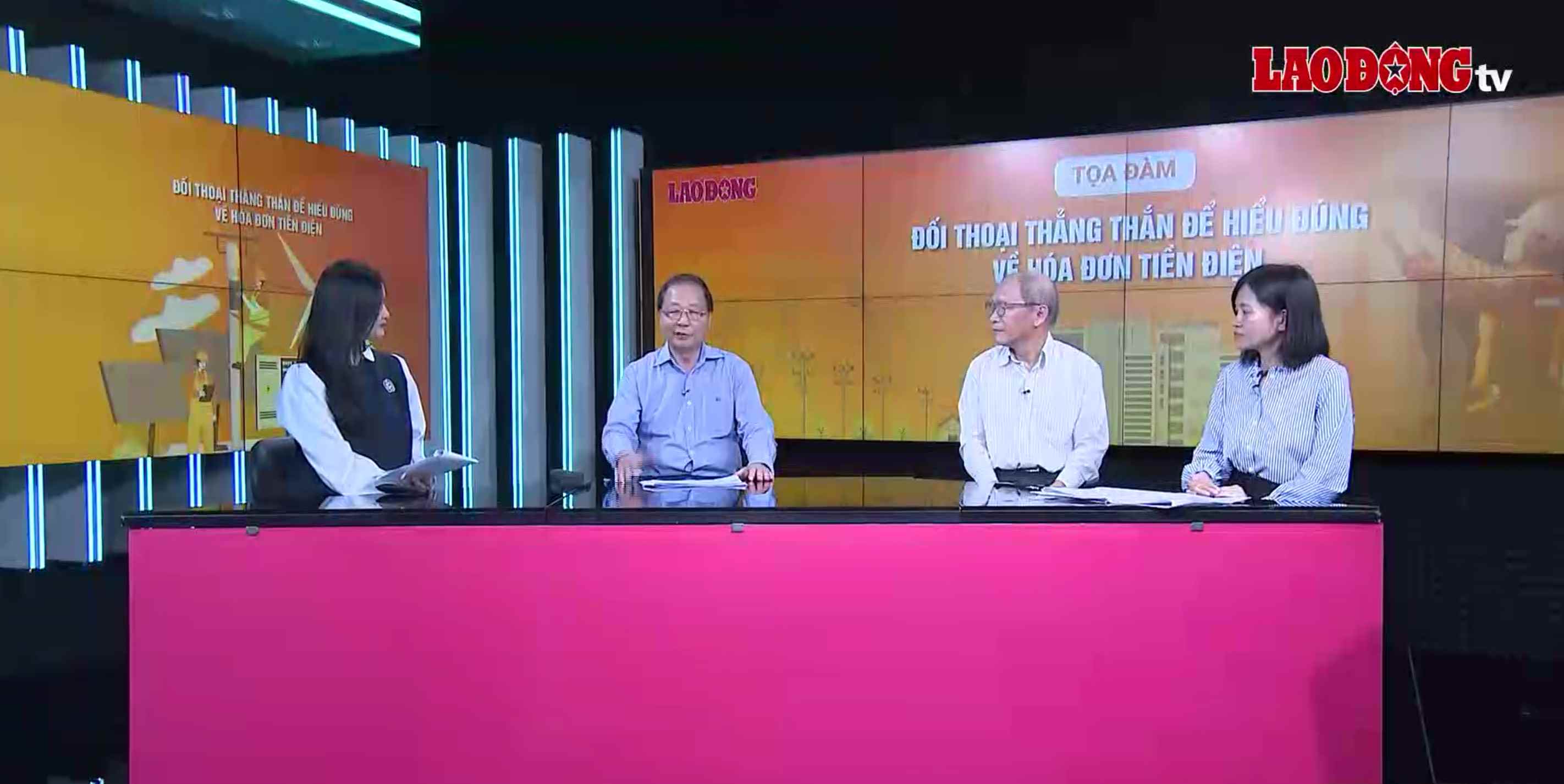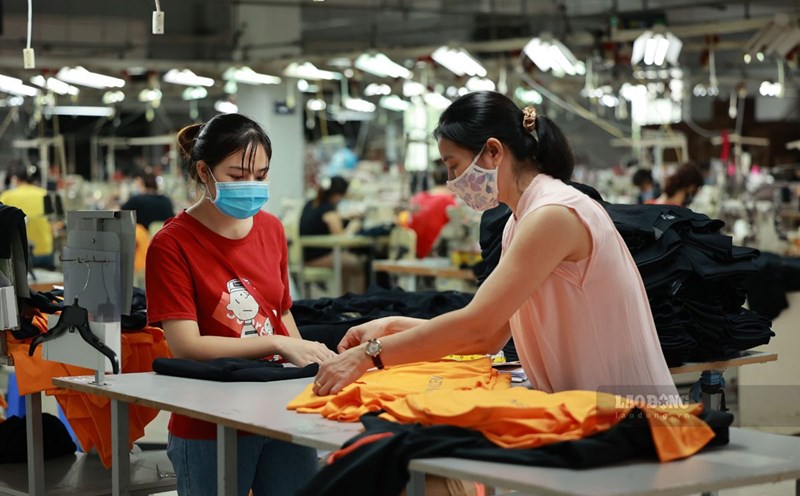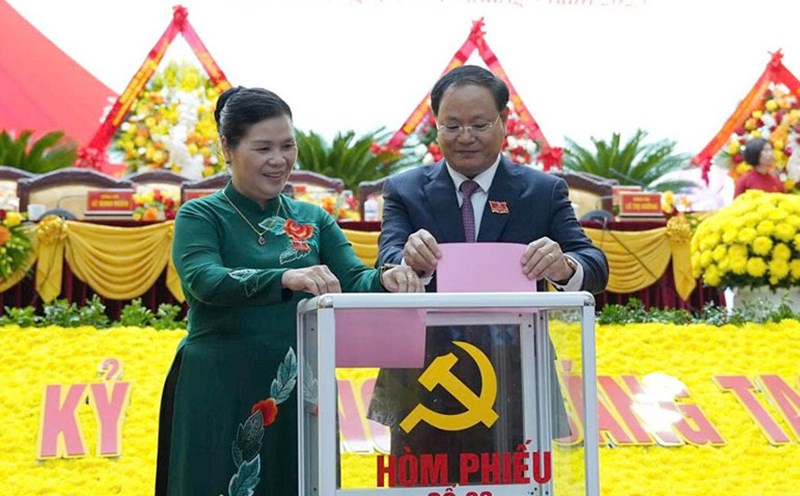On September 19, Lao Dong Newspaper organized a seminar: " needs to be frank to understand the correct understanding of electricity bills", to clarify the reasons for the increase in electricity bills, make recommendations for saving and using electricity safely and effectively, and discuss issues of concern to the people such as amending Decree 72 on the average retail price mechanism for electricity to create a transparent, public and consistent legal corridor with the market mechanism, for common benefits.
Mr. Nguyen Tien Thoa - Chairman of the Vietnam Price Appraisal Association, former Director of the Price Management Department, Ministry of Finance, said that it is necessary to view objectively and in many ways, the so-called "loophole" is not reported or calculated by EVN.
"The figure called a " District" of more than VND 44,000 billion was announced by an independent auditing agency. Therefore, I always do not use the word "bad" but call it " negative cash flow difference" or "cash flow deficit". It is called a loss that is not in essence," said expert Nguyen Tien Thoa.

According to the Chairman of the Vietnam Valuation Association, for goods and business services operating under market mechanisms, enterprises have full autonomy in finance, prices and production and business activities. When launching products on the market, businesses must take responsibility for their own efficiency, profits or losses, and no one should share.
However, for EVN - a state-owned enterprise, goods "carry" multiple targets, the price is decided by the State. The task is not only to preserve capital, but also to implement other policies of the State.
Mr. Thoa said that in 2022, the cost of electricity production increased by 9.2%, but retail electricity prices were only adjusted by 3% to control inflation and ensure social security in the context of the COVID-19 epidemic. Meanwhile, the new rate of 9.2% accurately reflects the actual cost.
"If it is called a loss, this is a "policy loss" that is, an objective loss, which needs to be recognized and shared with the electricity industry. The goals often conflict with each other. In the immediate future, it is necessary to comply with that at some stage, there must be a restrained price to achieve the country's major goals.
However, in the long term, it is necessary to amend Decree 72 to ensure the implementation of the Electricity Law, to be correct and sufficient, and gradually move towards a market mechanism, Mr. Thoa emphasized.
According to Mr. Thoa, the new Electricity Law requires us to calculate correctly and fully. Resolution 70 of the Politburo on ensuring national energy security until 2030, with a vision to 2045, also requires following market costs.
Mr. Thoa emphasized that costs that have not been reflected in prices but have been calculated correctly and fully must necessarily be gradually allocated to electricity prices. This is not an unreasonable cost or due to poor management of enterprises leading to a cash flow deficit.
"The problem is how to put these costs into prices to avoid causing shock to the economy and consumers, which needs to be carefully calculated," he said.
What happens if EVN's 44,000 billion VND loss is not resolved
Speaking with Lao Dong, Mr. Ho Sy Quang - Deputy Head of the Electricity Price Management Department, Department of Electricity - Ministry of Industry and Trade said that if EVN's negative cash flow deficit cannot be handled, the group's capital, that is, State capital, will be directly affected.
When there is no profit, EVN cannot accumulate to reinvest in power projects. This affects EVN's reputation with banks, increasing risks when borrowing capital, leading to stagnation in investment and reproduction, thereby affecting national energy security.
In the context of implementing the VIII Power Plan and the adjusted VIII Power Plan, many key projects needing large capital such as the Potential Hydropower Plant, Quang Trach Thermal Power Plant or the nuclear power project, if the costs directly serving power production are not recovered, EVN's business capacity will decrease significantly.
In principle, to invest and do business effectively, businesses must have strong counterpart capital. If counterpart capital is weak, borrowing capital will also be limited because banks will find it difficult to accept lending when their internal resources are not guaranteed.
"Therefore, EVN's losses need to be handled through a correct and sufficient calculation mechanism for reasonable electricity production costs, but have not been accounted for and recovered at the right time. This revocation should have been carried out in the 2023 - 2024 period, but EVN has not been able to implement it yet," said Mr. Quang.











